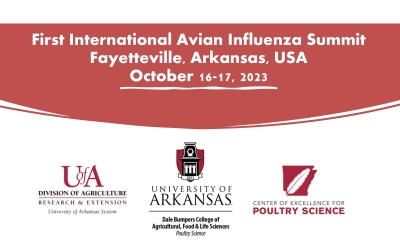Vaccination against highly pathogenic avian influenza (HPAI): From opposition to acceptance
Authors: Awad A. Shehata and Guillermo Tellez-Isaias
GMPC TOP
2023.
vol. 3, Iss. 1
pp:0-27
Doi: https://doi.org/10.51585/gtop.2023.1.0030

Abstract:
The emergence of Highly Pathogenic Avian Influenza (HPAI) strains poses a significant threat to both avian populations and human health. Vaccination has been identified as a critical tool in mitigating the spread of HPAI. However, the acceptance and implementation of avian influenza vaccination programs have been met with opposition from various stakeholders, including poultry producers, public health authorities, and consumers. This abstract provides a comprehensive overview of the evolving landscape of HPAI vaccination strategies, tracing the trajectory from initial resistance to widespread acceptance. Initially, concerns surrounding vaccine efficacy, potential adverse effects, and the economic burden associated with large-scale vaccination campaigns led to hesitancy among poultry producers and industry stakeholders. Additionally, public health authorities grappled with challenges related to regulatory approval, vaccine strain selection, and the development of robust surveillance systems. Over time, advancements in vaccine technology and extensive research demonstrating the safety and effectiveness of HPAI vaccines have gradually shifted perceptions. Adopting innovative vaccination strategies, such as vector-based vaccines and recombinant technologies, has addressed previous limitations and bolstered confidence in immunization as a viable control measure. Moreover, collaborative efforts between international organizations, governments, and research institutions have played a pivotal role in establishing standardized vaccine development, distribution, and administration protocols. These endeavors have facilitated harmonizing global strategies and enhanced the preparedness and response mechanisms for potential HPAI outbreaks. Consumer attitudes have also evolved, driven by increased awareness of the public health implications of avian influenza and a growing demand for sustainable and ethically produced poultry products. This shift in consumer sentiment has incentivized industry stakeholders to embrace vaccination as a proactive measure to safeguard both avian welfare and human health. In conclusion, this abstract highlights the transformative journey of HPAI vaccination programs, underscoring the pivotal role of scientific innovation, collaborative partnerships, and evolving consumer perspectives in overcoming initial resistance. As the global community continues to confront emerging infectious diseases, the successful trajectory of HPAI vaccination provides valuable insights into the dynamic interplay between science, policy, and public perception in the face of evolving health challenges.
Keywords:
Vaccination, HPAI, Vaccine safety and efficacy, Vaccine technology, Consumer attitudes
Statistics:
Article Views: 1510
PDF Download: 19